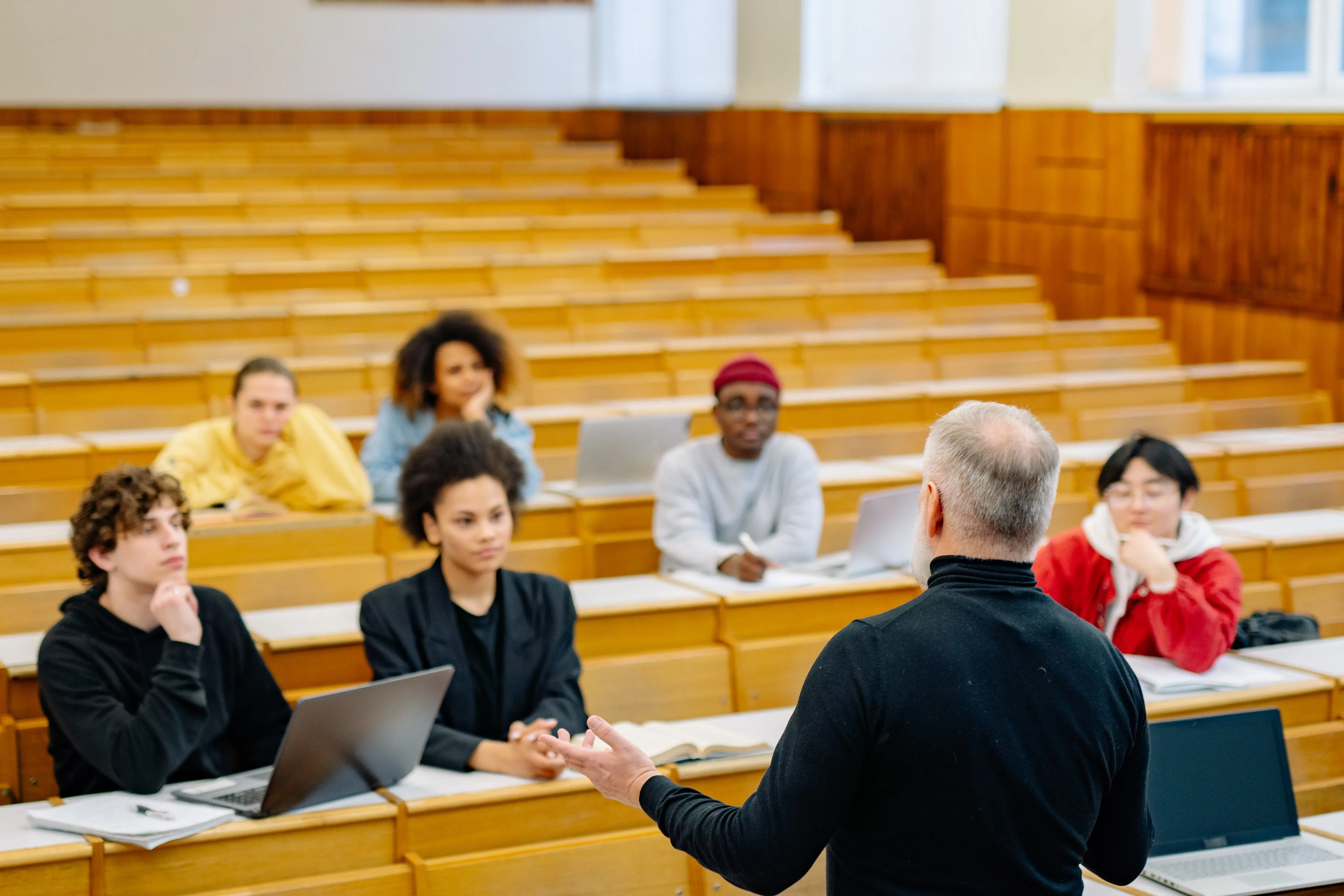Introduction to Literature Review on the Effect of Self-Esteem on Academic Performance of University Students
Various studies have been conducted in the past to investigate the relationship between self-esteem and academic performance, with the difference being their focus populations. According to most of these studies, self-esteem is a significant and influential factor in academic achievement. Self-esteem as a construct is perceived to determine one’s self-evaluation of their ability to perform certain tasks (Zhao et al., 2021). The comparison that emerges regarding one’s ideal self and perceived self plays a vital role during developmental years; particularly, during adolescence. Therefore, it is necessary to investigate the effects that self-esteem can have on the academic performance of university students, considering its important role in developmental processes during adolescence. Generally, high self-esteem plays a significant role in helping people consider themselves active and capable so that they can manage to promote changes through the setting of higher goals and putting more effort (Zhao et al., 2021). Interestingly, numerous studies that have been conducted on the two constructs have revealed that self-esteem plays a vital role in improving student performance. Self-esteem is also linked to social and personal responsibility and academic achievement (Zhao et al., 2021). Understanding this relationship by focusing on specific population groups is necessary, which is the reason this study was conducted.
Understanding Self-Esteem
According to Arshad, Zaidi, and Mahmood (2015), self-esteem is defined as an individual’s beliefs about their worth and value. It also encompasses the feelings that people experience regarding their sense of unworthiness or worthiness. Arshad, Zaidi, and Mahmood (2015) state that self-esteem is important considering that it plays an influential role in people’s decisions and choices. Self-esteem serves as a motivator regarding one’s decision to explore their full potential. Individuals with high self-esteem are those that are motivated to fulfill their aspirations and goals (Arshad, Zaidi, & Mahmood, 2015). These individuals also take care of themselves to ensure that they are in a better position to fulfill these aspirations and goals. On the other hand, people with lower self-esteem struggle with fulfilling their goals because they consider themselves unworthy of happy outcomes or unable to achieve the goals (Arshad, Zaidi, & Mahmood, 2015). In most cases, people with lower self-esteem let opportunities in their lives slide due to their lack of persistence and resilience. Notably, both people with high self-esteem and those with low self-esteem can have the same goals; however, the latter will be less motivated to pursue these goals because of a lack of belief in their ability.
Noronha, Monteiro, and Pinto (2018) believe that self-esteem is an abstract concept because of the complexity in understanding what it is to have it for those who lack it. They suggest a way in which people with lower self-esteem can begin appreciating the importance of having higher self-esteem. It involves considering how they may feel about the things they value in their lives. According to Noronha, Monteiro, and Pinto (2018), such thoughts will help a person with lower self-esteem understand the value of higher self-esteem. Individuals with higher self-esteem understand its value, which is why they make good decisions regarding their lives. Such decisions are focused on enhancing their value.
According to Rosli et al. (2012), self-esteem is one’s overall opinion of themselves, which is the way one feels about their limitations and abilities. When a person has high self-esteem, they feel good about themselves and consider themselves to deserve the respect of other people. However, when one has low self-esteem, they place little value on their capability, opinions, and ideas. Such individuals constantly worry that they are not good enough.
Hagen et al. (2020) examine the factors that shape and influence one’s self-esteem. According to them, self-esteem starts forming during early childhood and some of the common factors that shape it includes a person’s thoughts and perceptions, reactions of others to them, a person’s experiences at home, work, and school; illnesses, injury, or disability; age; and a person’s role and status in society. Hagen et al. (2020) stress the significant role that relationships play in determining a person’s self-esteem. Relationships with people close to a person, such as siblings, parents, teachers, peers, and other relevant contacts play a significant role in a person’s self-esteem. Many beliefs that one has regarding themselves are based on others’ opinions. If an individual has strong relationships and they receive generally positive feedback, they are highly likely to consider themselves worthwhile, which translates to high self-esteem. People that receive negative feedback and face criticism on numerous occasions are likely to struggle with low self-esteem. Therefore, relationships are important in determining people’s self-esteem.
Self-Esteem and Academic Engagement
According to Zhao et al. (2021), academic engagement is an essential predictor of academic achievement. Due to the important role that self-esteem plays in influencing academic achievement, it is important to understand its relationship with academic engagement. Their study explored the relationship between academic engagement and self-esteem, with academic self-efficacy considered to have a mediating effect. Additionally, perceived social support was considered to have a moderating effect on this relationship. The study involved 482 participants from China’s Hebei Province. All the individuals were adolescents with a median age of 14.92 years. The participants were recruited to participate in the study anonymously, whereby, they filled questionnaires. The results of the study revealed that self-esteem played a predictor role in adolescent academic engagement. It mediates academic engagement and the study revealed that the total mediation effect was 73.91%. The study also found perceived social support to play a second-stage moderator role whereby it moderated academic self-efficacy’s mediating effect. The study revealed that students that felt more perceived social support were likely to experience a significant impact of academic self-efficacy on their academic engagement. The findings of the study revealed that the key factors that improve academic engagement among adolescents are academic self-efficacy, self-esteem, and perceived social support. The study concluded that school educators and parents are supposed to be active in guiding their adolescents on how to improve their self-esteem, which will probably lead to improvements in their academic self-efficacy. Also, they should construct effective social support systems that will help improve their adolescents’ social support. An improvement of social support is linked to enhanced academic engagement.
Kim, Kim, and Lee (2021) examine the influence that self-esteem has on middle school students on their academic effect, with the mediating factors being academic enthusiasm and GRIT, which refers to effort and passion maintained over an extended period. The study involved the collection of data from 2590 first-graders from a 2019 survey in Korea. Among these participants, 54.2% were male and 45.8% were female. The study involved the use of questionnaire responses on academic achievement, GRIT, and academic enthusiasm were used. Data analysis involved the use of PROCESS macro program, AMOS22.0, and SPSS21.0. The study revealed that self-esteem had a significant influence on GRIT, which also had a positive influence on academic enthusiasm. Kim, Kim, and Lee (2021) concluded that there was an existence of a mediation effect between academic achievement and self-esteem through academic enthusiasm and GRIT. It demonstrated that self-esteem plays a significant role in improving academic achievement and the supplementation of certain programs can help in enhancing students’ self-esteem, academic enthusiasm, and GRIT. Therefore, the findings by Kim, Kim, and Lee (2021) support those of Zhao et al. (2021) on the effect of academic achievement; however, the latter emphasizes self-esteem’s predictor role on academic engagement.
Another study by Kharsah and Latada (2016) examines the relationship between self-esteem and academic engagement; however, they focus on how self-esteem and university commitment relate to students’ performance. The study was conducted at the University Malaysia Pahang in Malaysia and it involved 194 undergraduate students. 117 of the participants were female while 77 were males. The correlation of the study’s variables involved the use of the SPPSS package version 22. Here, students’ academic engagement was derived from their academic performance; particularly, their GPA scores. The study found that there is a significant relationship between academic performance and self-esteem; however, no significant relationships existed between academic performance and university commitment. The study suggests that the manipulation of sources of esteem can be key in ascertaining students’ performance. Therefore, Kharsah and Latada (2016) assert findings from other researchers on the relationship between academic engagement and self-esteem.
Cooper (2009) found that self-esteem acts as a mediator of girls’ academic engagement in his study examining associations between the relationship quality between fathers of African-American adolescent girls and their daughters and academic engagement. The study relied on 122 participants who were all African-American adolescent girls with a median age of 12.2 years. The study found that father-daughter relationship quality has a positive effect on girls’ academic engagement. It also found that self-esteem played a mediator role in the association between academic engagement and father-daughter relationship quality. Therefore, despite the study focusing on different constructs, it still supported other studies on the positive effect of self-esteem on academic engagement.
Self-Esteem, Gender, and Academic Performance
Various authors examine the association between self-esteem and gender on academic performance. According to Herrera, Al-Lal, and Mohamed (2020), gender has a significant effect on the academic performance of students and determines aspects, such as personality, emotional intelligence, and self-concept. The study found that the grades of the students that participated varied depending on gender, a demonstration of the impact of gender on academic performance. It involved 407 participants who were students who had enrolled in at least 2 years of primary education. 215 of the participants were girls while 192 were boys and the average age was 10.74 years. The evaluation of their academic achievements involved the consideration of grades obtained in the subjects of Spanish Language and Literature, Mathematics, and Natural Sciences. The study recommended the deepening of studies on variables capable of affecting gender differences.
Subon, Unin, and Sulaiman (2020) investigated the existence of differences in academic achievement and self-esteem between genders. They noted that the relationship between self-esteem and academic achievement of university students is still understudied. The study involved 120 students, with half being male and the other half female. The students were undergraduates studying the TESL program. The study involved the use of the Rosenberg Self-Esteem Questionnaire to collect data regarding the participants GPA and self-esteem. Data analysis involved Spearman’s rho correlation, which help in understanding the relationship between academic achievement and self-esteem. The results of the study revealed significant differences between gender and academic achievement. The use of an independent t-test result found the existence of a significant difference in self-esteem between the students based on their genders. The study’s findings reveal that gender has a significant effect on academic performance, with self-esteem playing a mediator role between the two variables. The findings of Herrera, Al-Lal, and Mohamed (2020) and Subon, Unin, and Sulaiman (2020) reveal that gender plays a vital role in determining academic performance; however, more research needs to be conducted on the same with a larger sample size to examine the field of study more.
Conclusion of Literature Review
The vast majority of studies found a positive relationship between self-esteem and academic performance, with some of them portraying self-esteem to play a mediator or predictor role. These studies emphasize the importance of this topic on the success of students in school settings. A consideration of the results of this literature review motivated the need to investigate the relationship between self-esteem and academic performance, with a focus on university students. Most of the studies reviewed focused on adolescents, which means that there is no significant information regarding the effect of self-esteem on the academic performance of university students, most of whom are past the adolescent stage of life.
References
Arshad, M., Zaidi, S., & Mahmood, D. (2015). Self-Esteem & Academic Performance among University Students. Journal of Education and Practice, 6(1), 156-162. https://files.eric.ed.gov/fulltext/EJ1083788.pdf
Cooper, S. (2009). Associations between father-daughter relationship quality and the academic engagement of African American adolescent girls: Self-esteem as a mediator? Journal of Black Psychology, 35(4), 495-516. https://doi.org/10.1177%2F0095798409339185
Hagen, R., Havnen, A., Hjemdal, O., Kennair, L., Ryum, T., & Solem, S. (2020). Protective and vulnerability factors in self-esteem: The role of metacognitions, brooding, and resilience. Frontiers in Psychology, 11, 1447. https://doi.org/10.3389/fpsyg.2020.01447
Herrera, L., Al-Lal, M., & Mohamed, L. (2020). Academic achievement, self-concept, personality and emotional intelligence in primary education. Analysis by gender and cultural group. Frontiers in Psychology, 10, 3075. https://doi.org/10.3389/fpsyg.2019.03075
Kharsah, W., & Latada, F. (2016). The correlation between levels of self-esteem, university commitment and academic performance among undergraduate students. The National Conference for Postgraduate Research 2016. https://core.ac.uk/download/pdf/159190438.pdf
Kim, J., Kim, E., & Lee, I. (2021). Influence of self-esteem of middle school students for mental care on academic achievement: based on the mediation effect of GRIT and academic enthusiasm. International Journal of Environmental Research and Public Health, 18, 7025. https://doi.org/10.3390/ijerph18137025
Noronha, L., & Monteiro, M., & Pinto, N. (2018). A study on the self-esteem and academic performance among the students. International Journal of Health Sciences and Pharmacy, 2(1). https://deliverypdf.ssrn.com/delivery.php?ID=089119105064004122099023110069088124022046039021042055064086124096098076117111108028063033000008109016026092119029103017122089006041062046036011080028113114120099091029030021101084120018006113067111113020089028105026101103121007010016081104072066122025&EXT=pdf&INDEX=TRUE
Rosli, Y., Othman, H., Ishak, I., Lubis, S., Saat, N., & Omar, B. (2012). Self-esteem and academic performance relationship amongst the second year undergraduate students of Universiti Kebangsaan Malaysia, Kuala Lumpur Campus. Procedia-Social and Behavioral Sciences, 60, 582-589.
Subon, F., Unin, N., & Sulaiman, N. (2020). Self-Esteem and academic achievement: the relationship and gender differences of Malaysian university undergraduates. IAFOR Journal of Psychology & the Behavioral Sciences, 6(1), 43-54. http://iafor.org/archives/journals/iafor-journal-of-psychology-and-the-behavioral-sciences/10.22492.ijpbs.6.1.03.pdf
Zhao, Y., Zheng, Z., Pan, C., & Zhou, L. (2021). Self-Esteem and academic Engagement among adolescents: A moderated mediation model. Frontiers in Psychology, 12:690828. https://doi.org/10.3389/fpsyg.2021.690828










